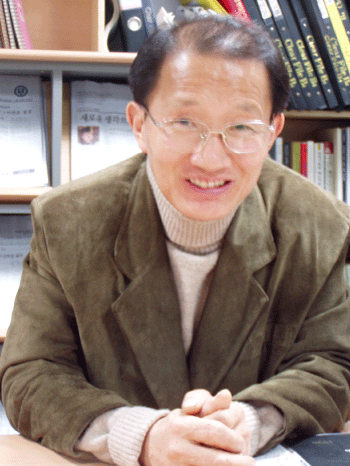
이미 신문에 몇 차례 소개된 적이 있다며 인터뷰를 거절하는 그를 어렵게 만나봤다.
- 봉사활동을 시작하게 된 계기는.
= 1990년 국민일보 사회면을 보던 중 경기도 포천에 있는 ‘사랑방 쉼터’를 알게 됐다. 버려진 아이, 독거노인, 가정폭력 때문에 집을 나온 주부 등 어려운 사람들을 돕기 위해 만들어진 곳인데, 울타리를 치지 않기 위해 정부지원금을 받지 않는다는 책임자의 말이 감명 깊었다.
그래서 ‘사랑방 쉼터’에서 자원봉사를 하기로 마음먹었고 폐지수집을 통해 마련한 돈과 아내의 가게에서 얻은 생필품 등을 전달하며 성심성의껏 도왔다.
- 지금은 어떤 활동을 하고 있는지.
= 8년여 동안 ‘사랑방 쉼터’를 열심히 도왔는데, 그곳에서 불미스러운 일이 일어났다. 큰 충격을 받았고 배신감마저 들었다. 그 뒤로는 그 곳을 찾지 않았다.
대신 영등포 쪽방이나 봉천 7, 8동 달동네에 있는 쓰러져 가는 집들을 수리하는 활동을 하고 있다. 또한 앞으로는 서울 25개 구에 있는 불우이웃을 내가 직접 찾아 돕고 싶다.
아직도 우리 주위에는 도움이 필요한 이웃들이 많이 있다.
- 봉사활동을 하며 인상 깊었던 일은.
= 한번은 불우한 아이들에게 과외 교육을 제공하는 공부방 수리를 한 적이 있다. 수리를 끝내고 나니 아이들과 선생님이 너무 좋아하면서 엉엉 울더라.
그때 나도 같이 울었다. 그런 모습을 보고나면 봉사활동을 멈출 수가 없다.
대학부
.

